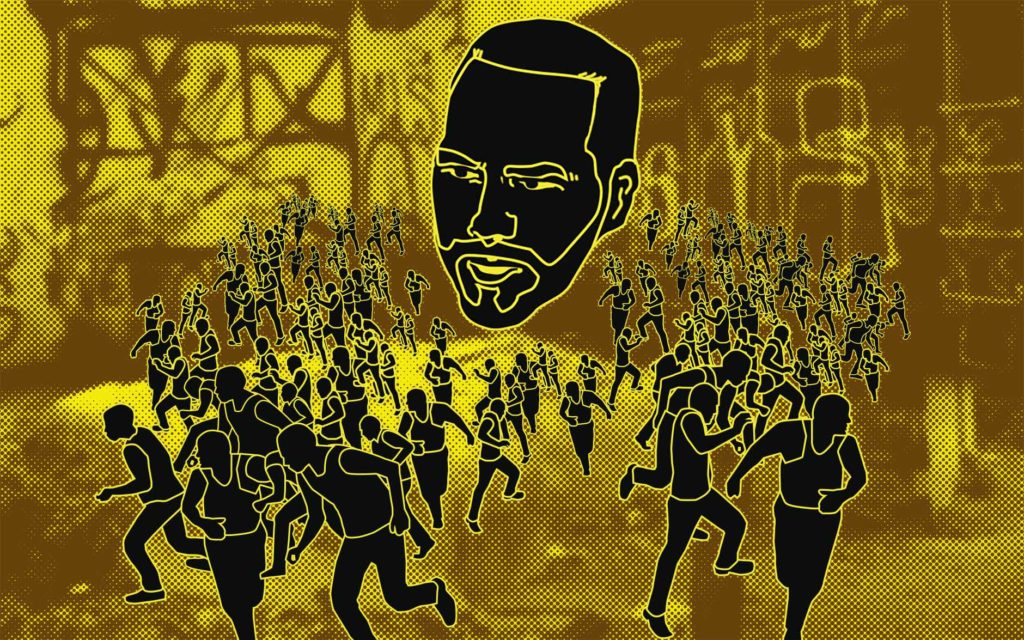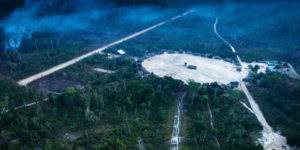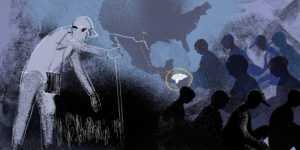Since President Bukele imposed the state of emergency in El Salvador in March 2022, hundreds of gang members have fled to Mexico, the US, Nicaragua, Honduras, Guatemala and Spain. Dromómanos and Redacción Regional interviewed dozens of men who went from calling the shots in El Salvador to living miserably abroad and fearing deportation. As the Bukele government turns into a dictatorship, those who stayed are either imprisoned or in hiding.
Text: Bryan Avelar and Carlos García
Cover: Donají Marcial
I. Gang members without a gang
One evening in early March 2024, a gang member known as El Pinki ran out of marijuana, so he grabbed a small knife and went out, shirtless, to rob the first person who crosses his path. A woman was walking with her purse under her arm and cellphone in hand. El Pinki – a tall, young man with a bony face – rudely flaunted his tattoos and snatched her cellphone.
“You better keep going and not say a word, old hag,” he warned.
Pleased with the successful robbery, he was on his way to trade the phone for more drugs when a group of men stopped him. It was the president of the neighborhood board and his entourage.
“You are not going to rob here anymore,” the president said, and one of his men hit him on the legs with a steel pipe.
El Pinki started running desperately, looking for protection in El Güero’s house – the gang leader in this neighborhood in Tapachula, a city in southern Mexico on the border with Guatemala. This, however, did not stop the men, who entered the house and continued to hit him.
He was punched, kicked, and hit with pipes.
“Just don’t hit him on the head because we can get in trouble,” the president ordered, while El Güero watched the scene from an old, black armchair.
El Pinki covered his face and burst into tears, “Stop hitting me! I swear I’ll never steal again! I will work; I can give all of you a haircut for free. I swear!”
The gang leader looked at him with pity but did not intervene for his “homeboy.” He didn’t even ask why El Pinki was being beaten in his house.
The beating stopped. The men took the woman’s cellphone and issued a last warning: if he steals again, they will make him disappear.
In tears, El Pinki returned home, where he tended his wounds without the anesthetic effects of marijuana.
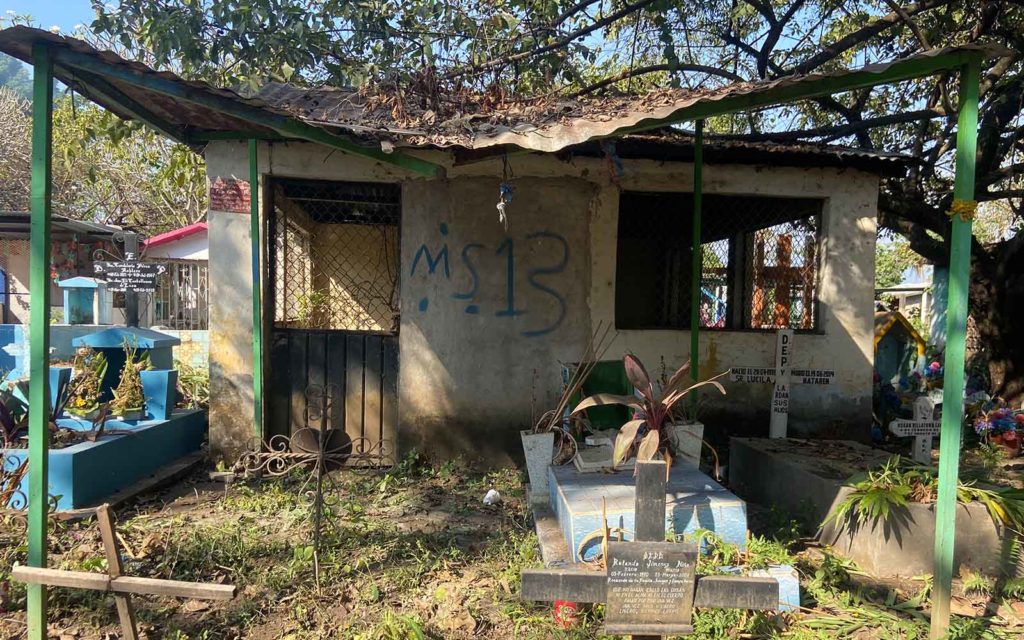
One week later, a group of young men gathered on the banks of the Coatán River, Tapachula, in the same neighborhood where El Pinki was beaten. It’s almost 3 p.m., and the group moves close to a wall that mercifully provides shade. El Güero – a short, brawny man with a shaved head – pokes a fire with a large plastic tube as he talks about the beating.
“Man, I tell these guys to stay away from trouble. It’s different here; they’re not in charge anymore,” El Güero says.
El Pinki, who is sitting on the sidewalk, gives him a sidelong glance, full of rage and shame. The others nod their heads while listening.
The gathering is, at the very least, strange and even inconceivable until recently. The five young men are gang members, but belong to two criminal groups that have been historically at war, a conflict that has left thousands dead in El Salvador alone in the last two decades. Three of them belong to MS-13 and two to Barrio 18. This afternoon, they have gathered as homeboys from the same clique (slang for group). But they are not really a clique.
In Tapachula, there are gang members but no gangs.
Many years ago, Tapachula, a transit point for migrants heading to the US, was part of territory controlled by MS-13 beyond Central America’s Northern Triangle (Honduras, Guatemala and El Salvador). Now, old buildings are covered with faded graffiti, which are constantly replaced by competing gangs. Official figures reaffirm how feeble they have become. According to the Attorney General’s Office in Chiapas, between January 1, 2021, and October 4, 2022, 241 gang members were detained, but only 12 of them were prosecuted: three for homicide, seven for robbery, one for battery and one for possession of drugs. Now Tapachula is just a hideout, a place where it is safe to return.
“It’s every man for himself in this place. If you mess with the wrong person, you are dead,” said El Güero, who has lived in Tapachula for almost two years and sells crack, marijuana and cocaine on the streets.
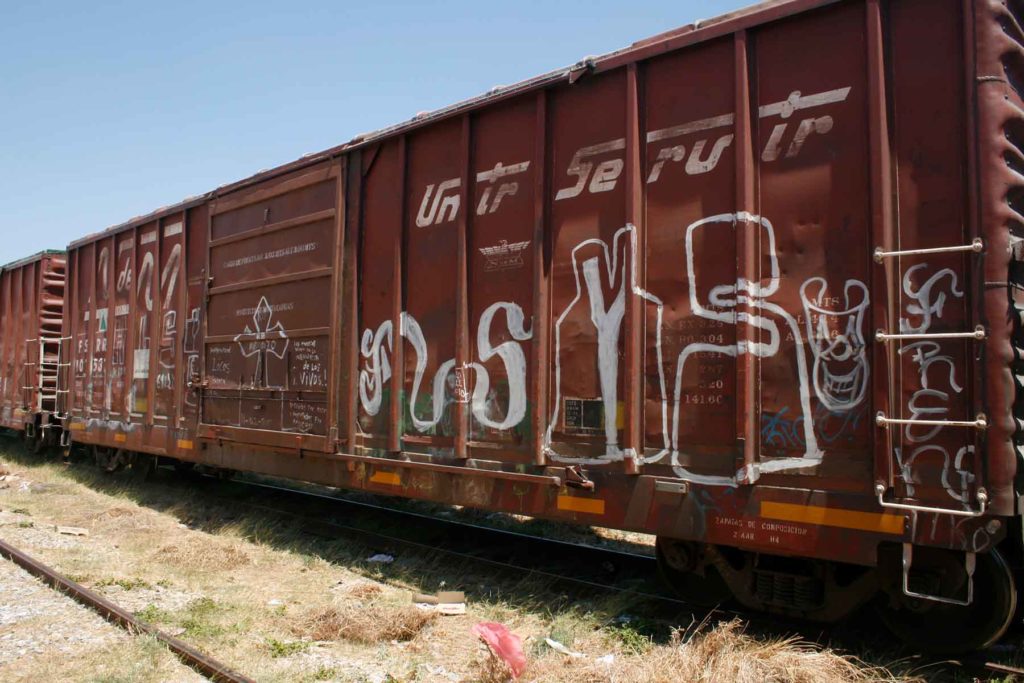
Gangs’ decline began in south Mexico in 2005, when hurricane Stan swept away the railroad on which migrants rode atop “The Beast,” the northbound freight train. As a result, gangs’ main source of income, kidnapping and extorting migrants, was compromised. But MS-13’s greatest defeat is owed to the wave of police and military officers that Bukele deployed to the streets after imposing the state of emergency in March 2022. This exceptional measure, which initially suspended several rights of Salvadorans for 30 days, has been renewed 26 times and is still in effect after two years.
Since then, hundreds of gang members have fled the country: some went to Honduras and Nicaragua; others north to Guatemala, Mexico and the US; while others across the ocean to Spain. For more than two years, journalists have interviewed – by phone and in person – over twenty gang members who fled to six countries and are part of the MS-13 diaspora.
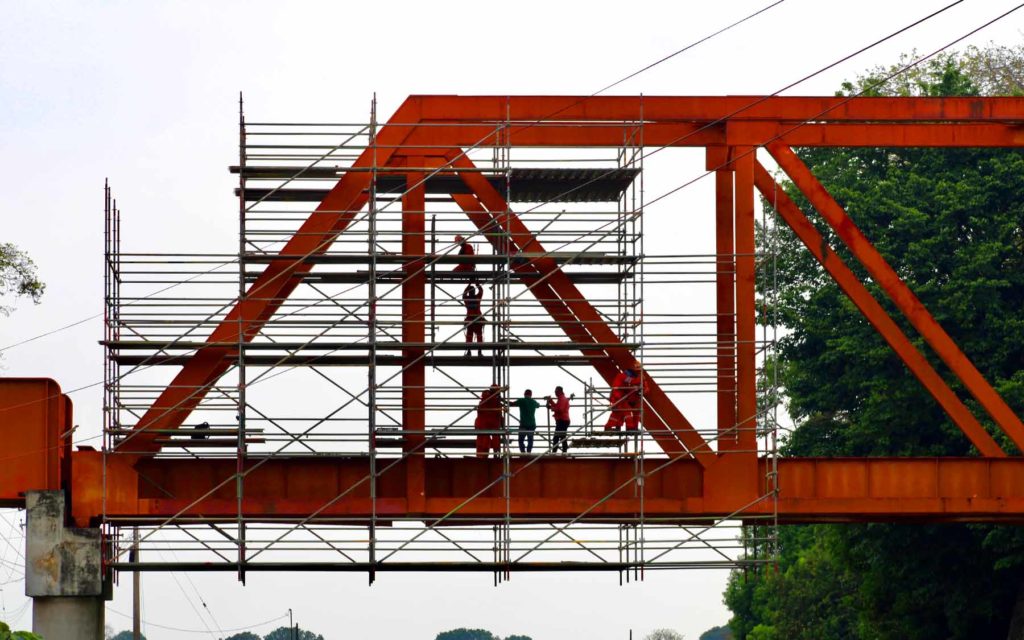
The gang members said their instinct was to escape and hide among Salvadoran migrants, who for decades have fled from hunger and violence caused by the gangs themselves. They looked for illegal crossing points, used gangs’ contacts in other countries, paid smugglers, bribed police officers and some even claimed asylum; taking advantage of the corruption in institutions and legal loopholes while posing as victims of the violence in El Salvador. The overwhelming majority of individuals who had a grip on 90 percent of the country and the lives of millions of people are hiding, living miserably and dread deportation.
Hueso, 48, spent 30 years in the MS-13 gang and now lives off a pastor who provides him with food and housing in San Pedro Sula’s Rivera Hernández district, one of the poorest areas in the country and a stronghold of that gang. “Can you help me bring my family? My life in El Salvador is over,” he would say back in November 2023.
Mache used to say he was “proud” of his president, whom he considered a “legend,” but fled to Barcelona, Spain, after a neighbor (whom he had intimidated) denounced him on Facebook.
When the state of emergency was declared, Veterano – a high-ranking gang member from the South Side Locos clique who was active in El Salvador and the US – had been released from prison only 33 days prior. He fled to Guatemala and is an active gang member (one of the few mentioned in this piece) following the collapse of the MS-13 in El Salvador, according to a member of his clique and a police report released by Guacamaya Leaks.
The five gang members sitting around the fire on the banks of the Coatán River also escaped from El Salvador. They used to be dangerous hitmen who wore loose clothes, carried a gun and had a malicious gaze. But they have been defeated and can’t even steal a cellphone with impunity now.
In Mexico, there is a mafia – or organized crime – but it is not them.
“Los Señores (the Sinaloa Cartel) are at the top, then it’s us in the middle and the so-called gangs are at the bottom. They aren’t even gangs anymore, but they do sell drugs. However, if we catch them stealing or extorting, we won’t forgive them,” said the president of the neighborhood board and leader of a group that watches the community at night.
Recently, the Jalisco Nueva Generación Cartel has been fighting over control of the border state of Chiapas.
“The Cartel controls everything: the territory, institutions, politics, drug routes and migrant smuggling,” explained Bigote, a state police officer who has worked in this region for almost a decade and asked to remain anonymous. “The arrival of gang members from El Salvador has not changed the criminal landscape in Tapachula. Street drug sales have increased, however. Gang members are allowed to sell crack, marijuana and cocaine as long as they buy the drugs from the Cartel.”
This afternoon, in the first three hours since starting the fire on the river bank, some 30 people have come to buy small batches of drugs for 50 or 100 pesos ($3 or $6). This takes place in broad daylight and in plain sight.
Two agents from the Municipal Police drove by, and the co-driver tilted his head backward and closed his eyes as if nothing had happened.
“You see?” El Güero asked, “If one takes it easy, nothing will happen. Don’t mess with anyone and don’t look for trouble. Smart people, not idiots, are the ones who survive.”
“People here belong to MS-13?” I asked him.
“No.”
“Barrio 18?”
“No.”
“Which one then?”
“It’s different here.”
El Güero keeps poking the fire. The number 18 had been painted in red on the wall, which is casting shade on such an unusual gathering.
“Anyone can live here and work with us. We will show them respect. But we are done killing and hating each other; that is the path forward if we want to survive.”
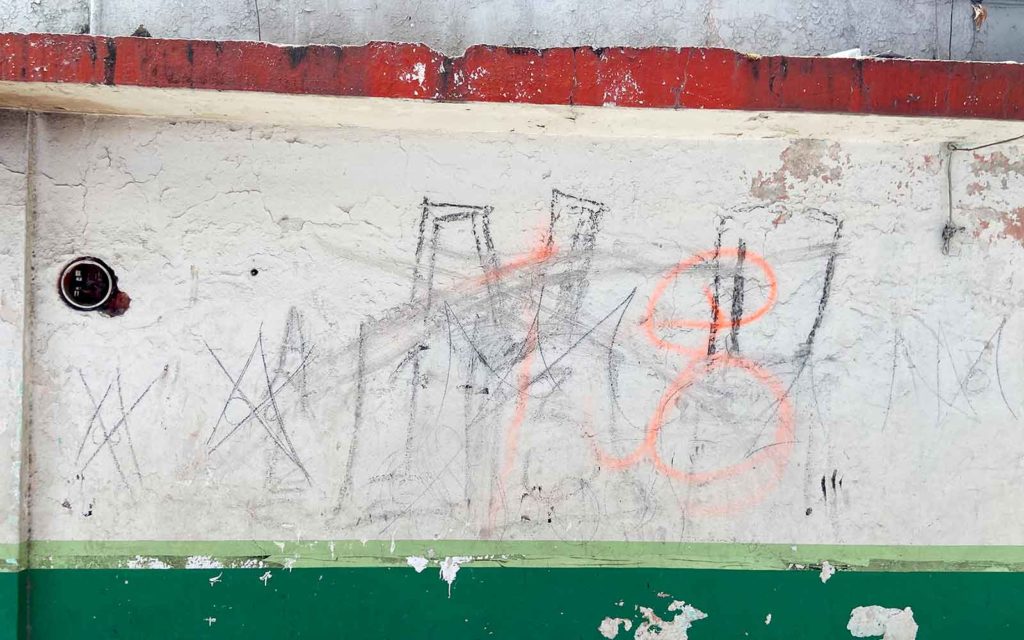
II. Exodus
The state of emergency was enacted early in the morning of March 27, 2022, after the gangs had killed 87 people over the preceding three days. But the killings, the highest number since the 1992 peace accords, had an explanation: the secret deal that the Bukele government had with gangs for a little over two and a half years had fallen apart.
Authorities said they detained 4,357 alleged gang members in the first seven days of the state of emergency. In a month, the number rose to 34,000. Now, after more than two and a half years, 80,000 people have been detained. According to Bukele himself, there were 60,000 active gang members in El Salvador by 2020, including 17,000 who were in prison before he took office. Although authorities initially denied having detained innocent people, they have released 7,000 people due to insufficient evidence.
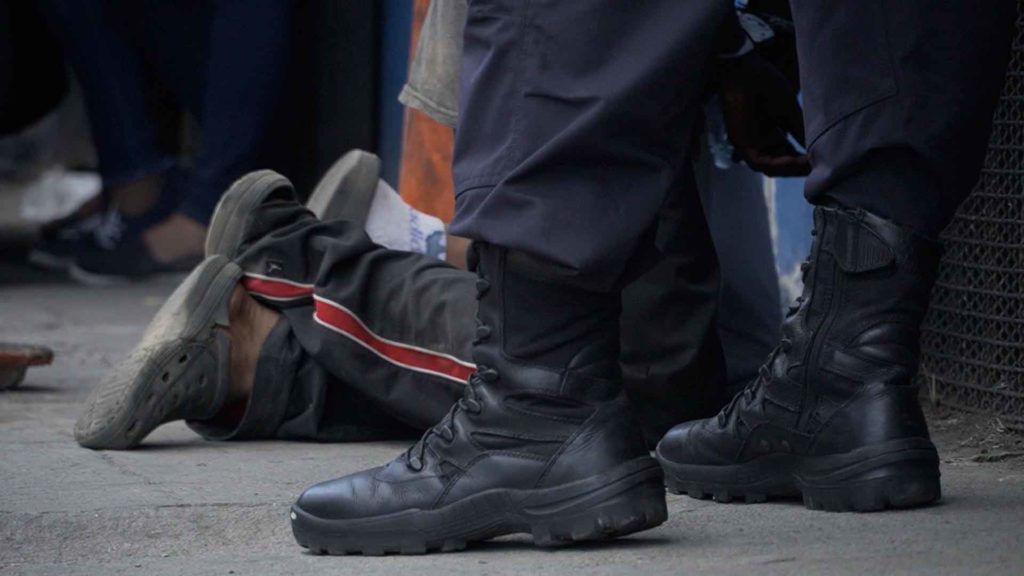
Mr S. fled from El Salvador the day the state of emergency was declared, wearing the same clothes he had put on that morning.
Over the year and a half prior to his exile, he had to appear every week before the Specialized Court of San Miguel, a city in eastern El Salvador. This was a legal measure imposed by the court over his ties with a faction of MS-13 accused of committing murders and extortion for several years in that city. But he no longer looks like a gang member and tries to come across as an evangelical pastor. He wears long-sleeved shirts and neatly pressed pants. Now he talks differently, doesn’t have an arrogant gaze anymore and walks upright – adopting the manners of a man of God. He’s still burdened by his past, however, since authorities still see him as a gang member.
When Mr S. left the court, he noticed his wife had called him several times and sent numerous messages. He was concerned. “I thought someone had been killed,” he recalls. But that was not the reason she called: “The country is under a state of emergency. There are police and military officers arresting people everywhere, and they came looking for you,” she wrote.
Knowing that he couldn’t go home, he called a taxi driver that drove him to another city, where he hid. This happened shortly before noon. Then Mr S. boarded several vehicles and managed to illegally cross the border into Guatemala late at night. His friends from the gang helped him find an illegal crossing point and picked him up on the other side of the border in exchange for $500.
“It was terrible because I didn’t know what was going on. But I did know they were detaining everyone. It is as if God had warned me not to return home. If I had returned, I would be in prison right now,” he said.
He lives in Tapachula, some 600 kilometers from his previous home in El Salvador, with his wife and two sons, who crossed the border a few days later with the help of the gang. They have been hiding and keeping a low profile, away from crime, ever since. They founded a small evangelical church where they make enough money to survive.
Mr S.’s church, a small structure made of aluminum sheets and wood, was built on premises owned by a local, who gave him and his family permission to live there. A space seven meters long and three meters wide in the open air, where gentle breezes are unusual and the heat is unbearable. One afternoon in early March, Mr S. preached to a small group of seven, including his wife, Mrs N. – who is much younger than he. Mr S. is 42, and she is 25. Their sons are four and two years old.
Two of the attendees are former gang members who fled from El Salvador. They still have their tattoos, their gaze has retained an air of menace, and if one looks at them too long or asks them personal questions, they feign not to listen. They haven’t moved on from the gang, the organization they once knew as “La Bestia.”
Both of them have abandoned their gang and converted to Christianity like Mr S. But this is inaccurate for two reasons: “Converting to Christianity” has been a way of staying under the radar. The other motive, which has no precedent, is that there is no gang left that they can abandon. The powerful MS-13 gang and the clique Sailor Locos Salvatrucha – which they were once a part of – have been defeated. In the past, members of the MS-13 who wanted out needed their superiors’ approval. Disregarding this rule could mean death. But Mr S. and the other two gang members did not abide by it for one simple reason: there is no one to ask for permission.
Mr S. is going to preach on this March afternoon; it’s been two years since he fled from El Salvador. Exasperated and furious, veins protrude from his neck and forehead as he lashes out at those who were once his family: “Brother, the gang made us miserable, turned us into scum. That which we worshiped was a god of deception. We have fled from our country, our land, and are running from the wrath of God; but, brother, no one escapes his wrath. He is making us pay by having us endure hunger.”
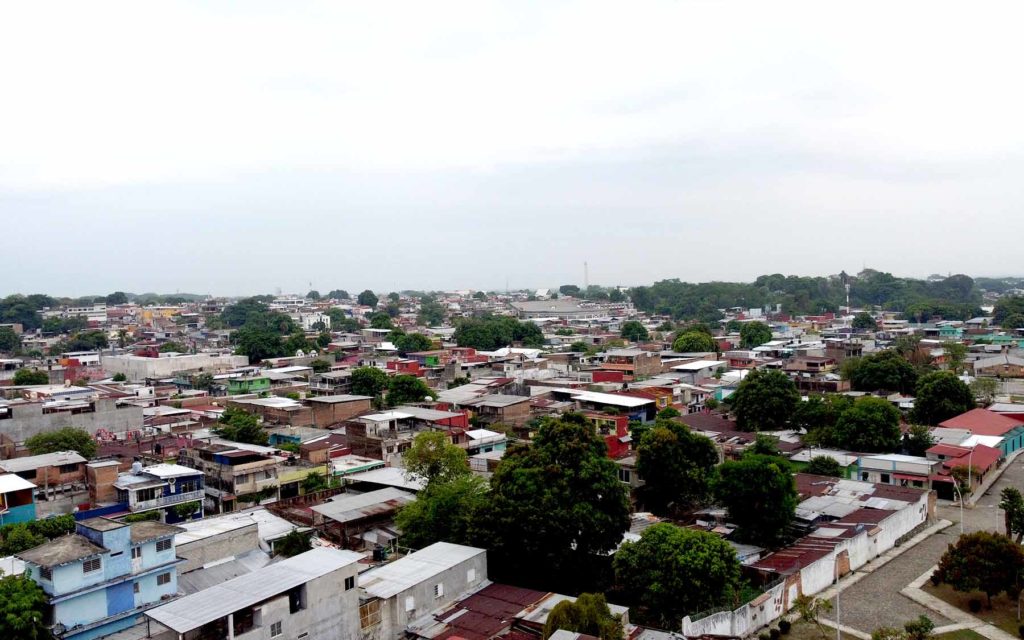
III. Remnants of “La Bestia”
MS-13 gang members refer to their gang as “La Bestia.” “La Bestia is looking for you,” “it’s your duty to worship La Bestia,” “one shouldn’t mess with La Bestia,” they say. The name has its origins in 1980s Los Angeles, when the Mara Salvatrucha was just a small group of Salvadoran rock fans who would listen to Twisted Sister’s The Beast. Many years later, thousands of them were deported to El Salvador, and La Bestia mutated into a gang that would oversee 90 percent of crime in that country. Now there are just pieces of the gang left. Both MS-13 and Barrio 18 have lost territorial control and their most profitable business, extortion, is over.
While gangs have been dismantled in El Salvador, it doesn’t mean they have disappeared entirely. Before the state of emergency, it was impossible to walk on the streets without being stopped by a gang member, but they are nowhere to be seen. Most of them are in prison or on the run. Some were detained while fleeing like a gang member who was found hiding inside a coffin on top of a private vehicle on its way to Guatemala. Those who remain at large within the borders – 17,500 people, according to the government – are hiding in woodlands, holes that they have dug on the ground or inside houses.
Mota is one of those who has avoided authorities. In October 2023, from an undisclosed location in El Salvador, he said MS-13 has collapsed and he is worn out from the paranoia of being detained and the prospects of spending the rest of his life in prison. Since the beginning of the state of emergency, he has left his house only six times to work and earn some money to survive. His work consisted of killing, selling drugs, stealing car parts and driving a taxi – all of which are attested by the 12 years he spent in prison.
When the state of emergency was declared, he did not have money to pay a coyote and flee from El Salvador. One year and a half later, he had given up.
“There was a time when I wasn’t afraid of going to prison or receiving a serious conviction. But I don’t want to spend the rest of my life in prison; I’m 45 years old,” he said.
Mota asserted that in El Salvador his gang has been dismantled. “I think the gang is practically in exile,” he said. He was a member of the largest criminal organization in the country and is now willing to be a nobody to retain his freedom.
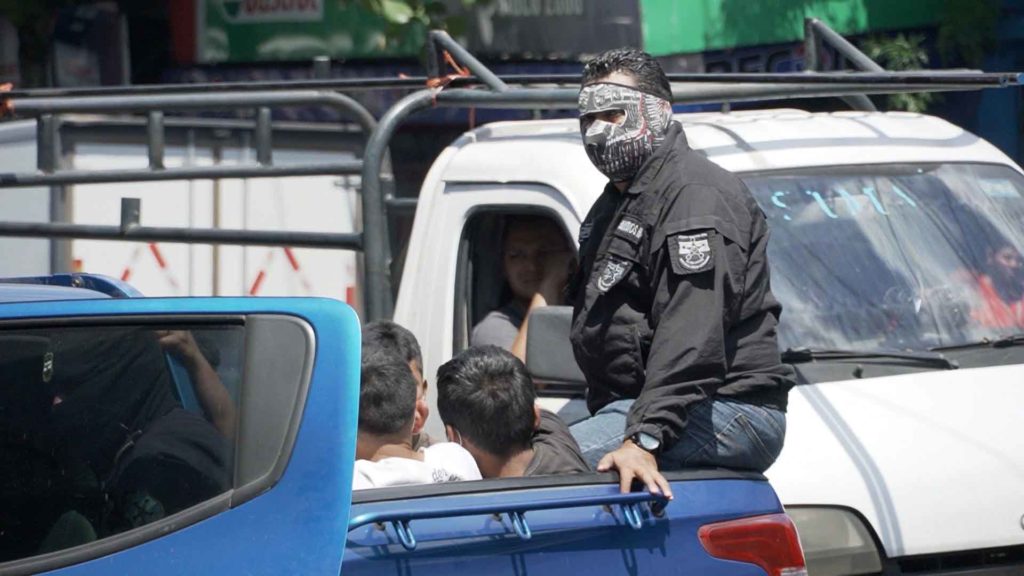
Every administration since 2003, when MS-13 and Barrio 18 were starting to grow into a criminal structure, implemented repressive measures against gangs. From Francisco Flores (1999-2004) who carried out his plan “Mano Dura” (Iron Fist), which consisted of conducting massive raids; to Antonio Saca (2004-2009) with his plan “Súper Mano Dura,” a copy of the previous administration; to Mauricio Funes (2009-2014) who militarized public security.
After Salvador Sánchez Cerén took office in 2014, the fight against gangs turned into a silent war, which encompassed the creation of death squads within the Police and Armed Forces, who killed hundreds of people (many of whom were innocent) – according to the Ombudsman’s Office and the US Department of State. But none of those measures or gang pacts with the previous three administrations, including the Bukele government, succeeded in bringing them down. Not until the state of emergency was imposed.
“How did Bukele manage to defeat the gangs?” one of the journalists asked El Güero.
“Bukele is more intelligent than the previous presidents, and this came as a surprise to gang leaders, you know?”
Bukele is in fact different from his predecessors. He took office with an 80 percent approval rating and consolidated his hold on all branches of power in less than two years. In other words, gangs were defeated by authoritarianism.
Gang members whom we interviewed said the crackdown had a paralyzing effect. These criminal groups – who were used to extorting, killing and controlling the lives of modest people – succumbed to a government that deployed armed vehicles, helicopters and tanks.
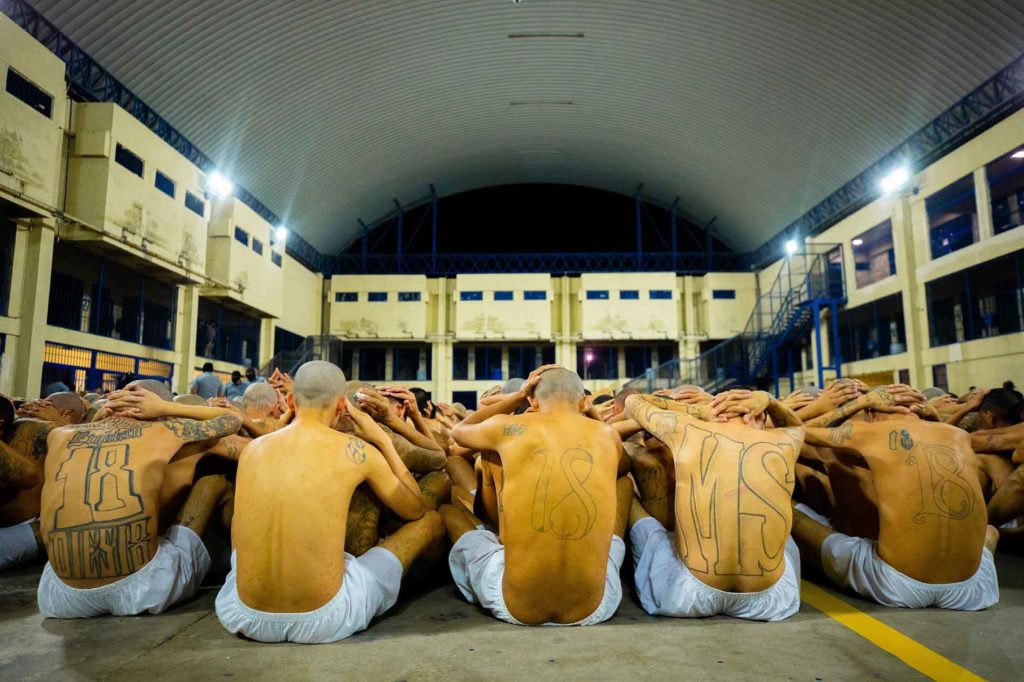
The government propagandized its victory over gangs and exhibited hundreds of gang members – showing their tattoos, crammed against one another and half naked – while being transferred to the mega-prison. Arbitrary detentions (3,170) and inmate deaths (261) registered by Cristosal, El Salvador’s main human rights NGO, are regarded as collateral damage in the official narrative.
The government refuses to answer questions concerning the whereabouts of Élmer Canales Rivera, a.k.a. Crook, who was illegally imprisoned by the Salvadoran government and subsequently apprehended by the FBI in Mexico, and long-time leaders of MS-13 and Barrio 18 – who are incarcerated in the maximum security prison of Zacatecoluca and with whom the government had a pact for two and a half years.
The Police and Secretary of Security Gustavo Villatoro have exhibited on social media dozens of gang members captured in Guatemala, Honduras, Mexico and the US. “They will not see the light of day again,” the photo description usually reads, issuing a sentence beforehand.
On May 10, Spain’s National Court recommended the government to dismiss the extradition of a Barrio 18 Revolucionarios member to El Salvador on account of human rights violations during the state of emergency.
In an interview with Tucker Carlson, a US commentator known for his right-wing views, Bukele asked, “Why does the Spanish government want one more gang member?” – and said he doesn’t care because that is “one person they won’t have to feed.”
Gang members interviewed for this investigation don’t know what became of their leaders, but asserted that ongoing efforts by high-ranking members to obtain prison benefits with no regard to their subordinates fractured the very structure of the gang.
“They negotiated their freedom with the government. Do you think that El Sirra, El Trece de Teclas, Lin de la 18 or El Chino Tres Colas are in prison? Well, they are not,” El Güero opined, “They got involved with the government without thinking about the people on the streets, you know? That’s when things got out of control. And with no leadership Bukele had the upper hand.”
The state of emergency turned La Bestia into a horde of individuals fleeing to many countries, including the US, its place of origin.
IV. The fall of gangs in El Salvador
Diablo, 39, cannot make sense of his life without the gang, which he joined at 13. “It’s because of the gang that I’ve gone through so much in my life, and I’ll probably die for it,” he said in a telephone interview in January 2024. His words sounded like a farewell, and there was not a hint of betrayal in his voice.
“The first most exciting thing I ever did was to carry out a mission. I had been with the gang for a while, and they asked me to go and shoot some guys from Barrio 18. Then I was arrested and sent to several rehabilitation centers, but that screwed me up even more,” he recalled nostalgically.
At 18, after doing time in three juvenile prisons in El Salvador and earning the respect of the gang, Diablo migrated to the US, where he also joined the criminal world.
“Wherever I go I find La Bestia,” he says.
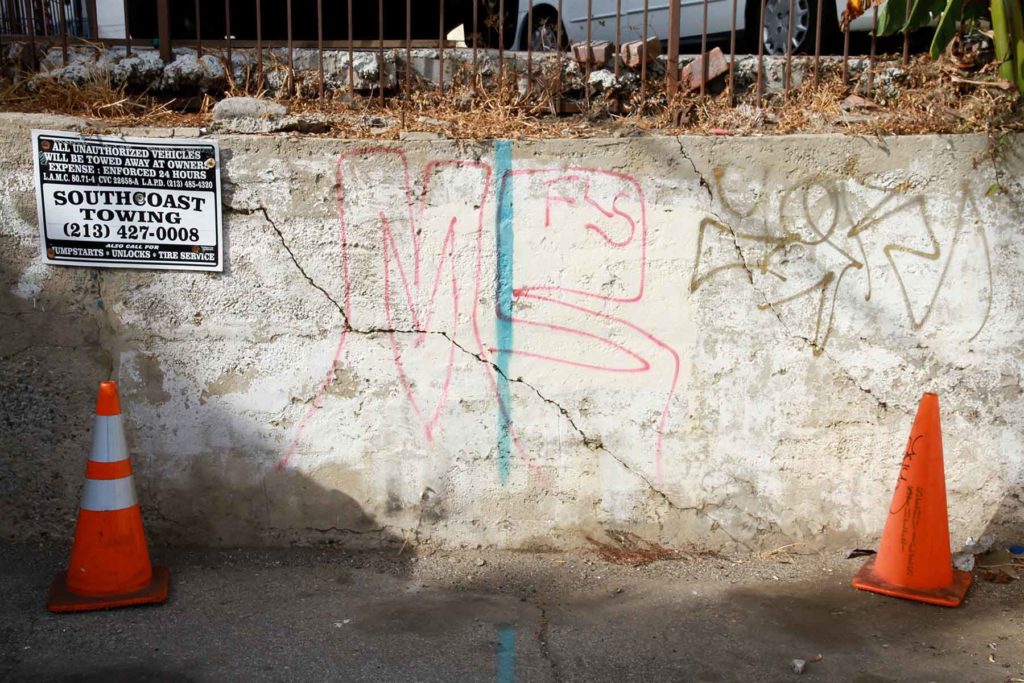
Diablo, who used to be a top MS-13 leader, fled from El Salvador to Nicaragua months before the state of emergency was imposed. There he remained hidden for almost a year, trying to get away from the gang.
“I became a preacher, but I didn’t preach to gang members. I really did my best to get away from that world.”
But in March 2022, when he got wind of Bukele’s reach and power, he got scared. “Nicaragua is very close. They could easily send me back to El Salvador, so I decided to get as far away as possible.”
In June 2023, Diablo scraped money together, about $1,000, and headed north. He spent a few weeks in Tapachula, where he got in touch with MS-13 gang members but without committing crimes.
“I made it to Mexicali (in the Baja California state, which borders the US). I was there for two days making some money, and then I jumped over the wall. Do you know what it’s like to migrate knowing there is a monster chasing you?”
He lives in Colorado now. He is in hiding at a friend’s house who migrated from San Miguel, El Salvador, many years ago, and has a hard time finding employment.
“My friend brings me food when he goes out to work, but I don’t go out. In a way, I’m in a prison, but this one is made of gold.”
He started working in a construction company a few weeks after arriving in the US, but he quit soon after.
“There were other migrants like me. If you are Salvadoran, you can tell who else is. The guys working there were civil and normal; they have never been involved in gangs, but they started giving me looks and spreading gossip about me.”
“‘Bukele is imprisoning gang members. Those sons of bitches will never get out,’ they would say loudly, almost yelling, making sure I’d listen, you know? So I left and never went back.”
La Bestia doesn’t take care of him anymore; Diablo is on his own.
***
While sitting close to the fire in Tapachula, the MS-13 and Barrio 18 gang members who fled from El Salvador talked about the remnants of La Bestia.
“There is no one left from my clique. They got all of them,” says a MS-13 member.
“Many from my neighborhood managed to escape, but I don’t know what became of them,” says another one from that gang.
“One of my homeboys made it to Mexico, but was killed after having an affair with a drug trafficker’s wife,” another one says.
“I’m the only one from my clique who made it out,” said another.
Late in the afternoon the trash that had been feeding the fire was slowly running out. One of the gang members rolled a joint and shared it with the others. The sun starts to set, and they make their way home. El Güero is the only one left. He is listening to a song by Venezuelan rapper Canserbero on a small speaker as the fire goes out and expels a last puff of smoke. He put his 9mm handgun on his waist and sang while the night was falling on the city.
Before we say goodbye, he tells me, “In the end, all of this turned out to be madness. The power, the guns and the drugs. Anything you could imagine. But it was all like a dream. I say this because we went from being little kids who did not instill fear in anyone to being the most feared individuals, you know? And we are at that point again except that we are old now.”
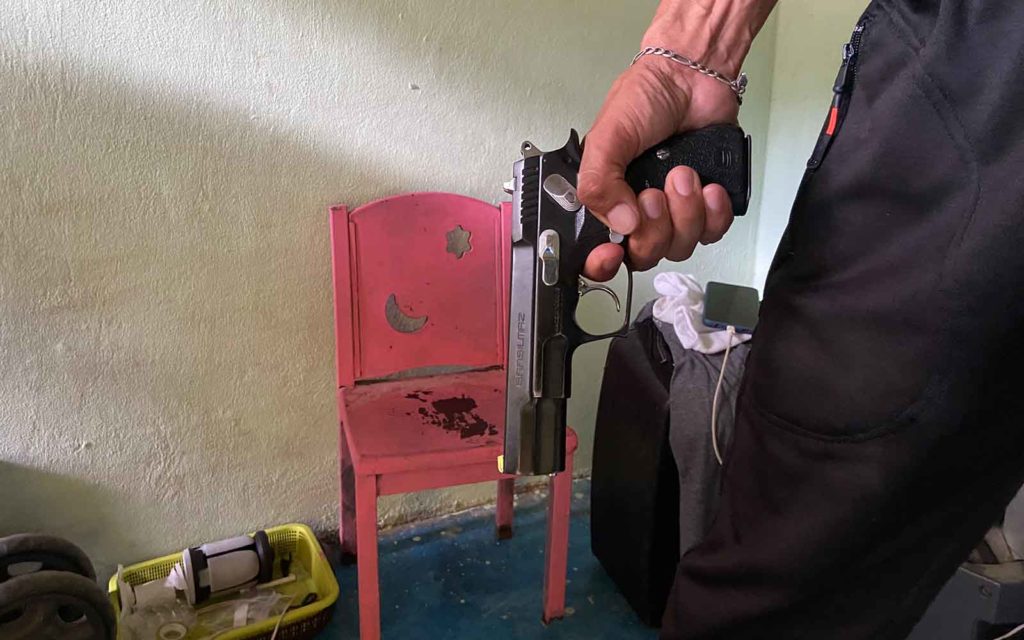
This investigation was carried out in collaboration with the Consortium to Support Independent Journalism in Latin America (CAPIR), which is led by the Institute for War and Peace Reporting (IWPR).


Registrate para recibir el boletín Memorias al corriente

